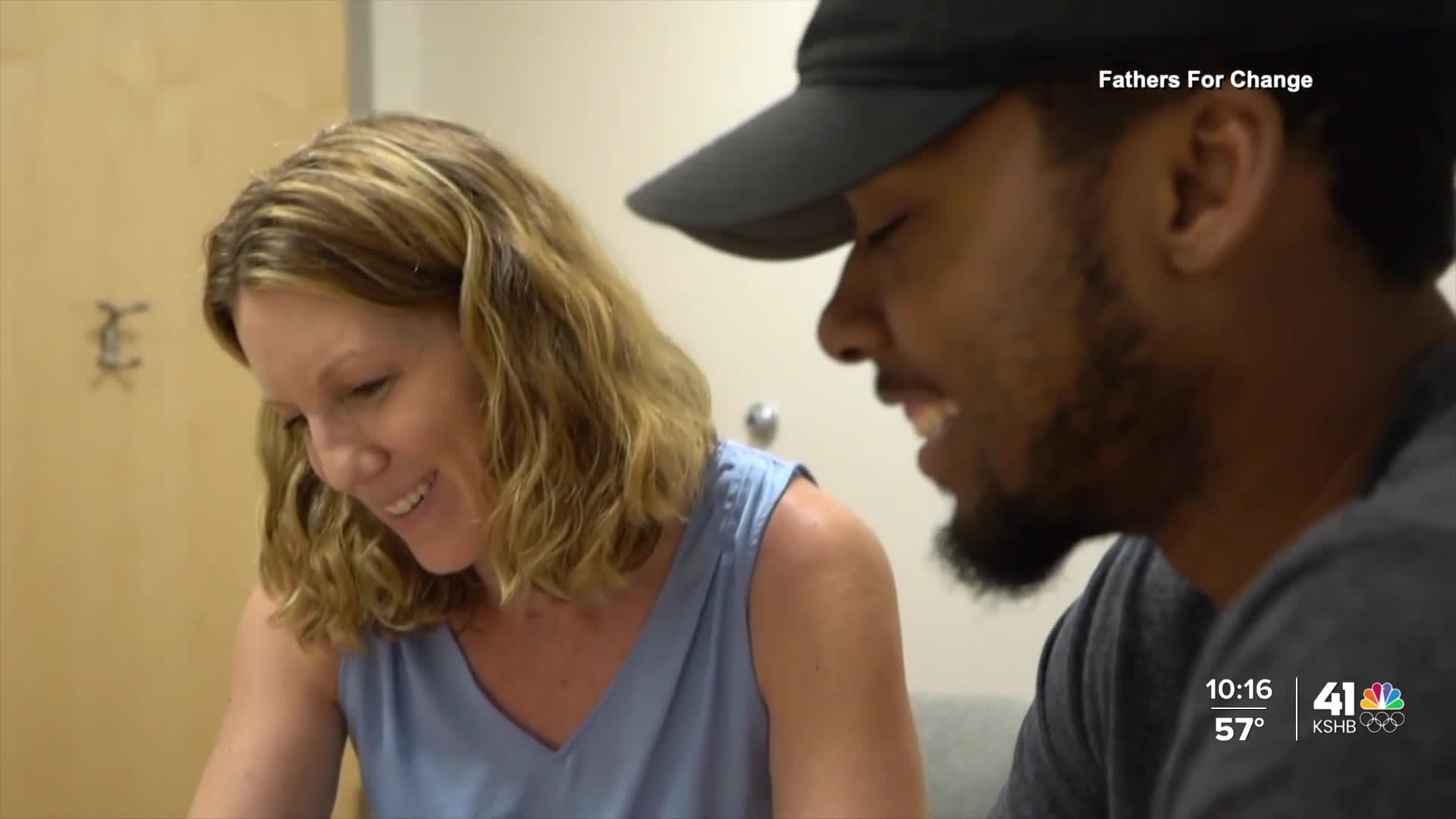KSHB 41 reporter Megan Abundis covers Kansas City, Missouri, including neighborhoods in the southern part of the city. This story is a part of her domestic violence awareness coverage for the month of October. Share your story idea with Megan.
—
The Municipal Court in Kansas City, Missouri, will become the first court system in the nation to implement a specialized program designed to help fathers who have committed domestic violence to become better parents and partners.
Dr. Carla Stover from Yale University's Child Studies Center is bringing Fathers for Change to Kansas City after KCMO Municipal Judge Courtney Wachal, who focuses on domestic violence cases, recognized the need for innovative interventions.
Judge Wachal gathered lawyers, treatment providers, law enforcement and victim advocates to announce the new program.


"It's so special to me that this doctor from Yale is taking an interest in Kansas City," Wachal said.
"I'm very excited to be here today," Stover said at the Thursday morning announcement that the Fathers for Change program is coming to Kansas City.
Stover developed the program after recognizing a gap in available interventions for fathers involved in domestic violence cases.
"It became clear that there were really no interventions available for the fathers who had used violence other than standard court-mandated," Stover said.

The program represents a continued shift from punishment to rehabilitation to focus on helping fathers address the root causes of their violence.
"These dads deserve a chance to recover and be good parents because that will benefit their kids," Stover said.
The goal is to reduce recidivism and break cycles of violence.
"So that outcomes are better, that you don't see these same individuals coming back through the courts, because we know recidivism is really high," Stover said.
Unlike other programs, Fathers for Change offers clinician-designed, one-on-one help for six months at no cost. The program aims to identify what drives a father's violence and what motivates him to become a better parent and partner.

"How does the father understand himself, understand his own triggers, how does he manage his emotions better?" Stover said.
Participants learn practical skills for managing their emotions and relationships.
"Anger issues, controlling your emotions, active listening, connection with each other," said one father who completed the program in Connecticut and did not want to be identified.

The program focuses on accountability and repair to help fathers understand the impact of their actions.
"I know as a young father it's hard to open up to people," said another father from Connecticut who participated in the program. "Before coming here, I didn't listen to how everyone else feels. I only cared how I felt and how to handle it."
Fathers learn to navigate the unique challenges of parenthood and co-parenting relationships.
"Once you have a kid, it's a whole different ballgame," the second father from Connecticut said. "You have these emotions you didn't know you had. You have these stresses you didn't know you had and don't know how to cope with it. They have all these tools to help you be a parent and co-parent."

The program's effectiveness is measured by various factors and studies, including following up with mothers a year after completion. Results from the program showed half the number of repeat calls to Child Protective Services compared to families who didn't participate in the program.
Stover said 75% of families completed the program in Connecticut.
The approach represents a significant shift in how the justice system addressed domestic violence cases over the past two decades.
"Everybody went to jail, there was no assistance or help," said Nephateri Hill, offender accountability coordinator for the Probation and Specialty Courts Division. "I always tell them, 'We will get through this together, but you definitely have to have skin in the game. You have to be a different person for yourself and for your children."'
The program teaches fathers healthy ways to express emotions rather than suppressing them.
"There's this idea that I can't be angry," Stover said. "Well, no. You need to understand your anger and express it differently. Because everyone has anger."
The program is funded for two years by a $200,00 grant from the Health Forward Foundation.
This story is part of a month-long series covering domestic violence in the Kansas City area. Here's Megan's previous coverage on the heavy caseload in the court system, successful intervention programs in Kansas City, the dangers law enforcement officers face when responding to domestic violence calls, program results from offenders of domestic violence, and a new task force to combat rising domestic violence deaths.
"This story was reported on-air by a journalist and has been converted to this platform with the assistance of AI. Our editorial team verifies all reporting on all platforms for fairness and accuracy."





